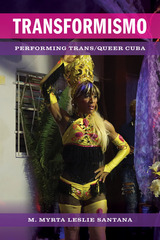4 books about African Americans and mass media
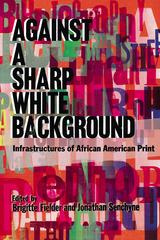
Against a Sharp White Background
Infrastructures of African American Print
Edited by Brigitte Fielder and Jonathan Senchyne
University of Wisconsin Press, 2019
The work of black writers, editors, publishers, and librarians is deeply embedded in the history of American print culture, from slave narratives to digital databases. While the printed word can seem democratizing, it remains that the infrastructures of print and digital culture can be as limiting as they are enabling. Contributors to this volume explore the relationship between expression and such frameworks, analyzing how different mediums, library catalogs, and search engines shape the production and reception of written and visual culture. Topics include antebellum literature, the Harlem Renaissance, the Black Arts Movement; “post-Black” art, the role of black librarians, and how present-day technologies aid or hinder the discoverability of work by African Americans. Against a Sharp White Background covers elements of production, circulation, and reception of African American writing across a range of genres and contexts. This collection challenges mainstream book history and print culture to understand that race and racialization are inseparable from the study of texts and their technologies.
[more]
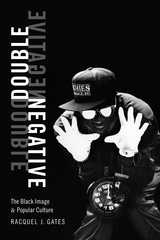
Double Negative
The Black Image and Popular Culture
Racquel J. Gates
Duke University Press, 2018
From the antics of Flavor Flav on Flavor of Love to the brazen behavior of the women on Love & Hip Hop, so-called negative images of African Americans are a recurrent mainstay of contemporary American media representations. In Double Negative Racquel J. Gates examines the generative potential of such images, showing how some of the most disreputable representations of black people in popular media can strategically pose questions about blackness, black culture, and American society in ways that more respectable ones cannot. Rather than falling back on claims that negative portrayals hinder black progress, Gates demonstrates how reality shows such as Basketball Wives, comedians like Katt Williams, and movies like Coming to America play on "negative" images to take up questions of assimilation and upward mobility, provide a respite from the demands of respectability, and explore subversive ideas. By using negativity as a framework to illustrate these texts' social and political work as they reverberate across black culture, Gates opens up new lines of inquiry for black cultural studies.
[more]
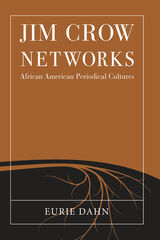
Jim Crow Networks
African American Periodical Cultures
Eurie Dahn
University of Massachusetts Press, 2021
Scholars have paid relatively little attention to the highbrow, middlebrow, and popular periodicals that African Americans read and discussed regularly during the Jim Crow era—publications such as the Chicago Defender, the Crisis, Ebony, and the Half-Century Magazine. Jim Crow Networks considers how these magazines and newspapers, and their authors, readers, advertisers, and editors worked as part of larger networks of activists and thinkers to advance racial uplift and resist racism during the first half of the twentieth century.
As Eurie Dahn demonstrates, authors like James Weldon Johnson, Nella Larsen, William Faulkner, and Jean Toomer wrote in the context of interracial and black periodical networks, which shaped the literature they produced and their concerns about racial violence. This original study also explores the overlooked intersections between the black press and modernist and Harlem Renaissance texts, and highlights key sites where readers and writers worked toward bottom-up sociopolitical changes during a period of legalized segregation.
As Eurie Dahn demonstrates, authors like James Weldon Johnson, Nella Larsen, William Faulkner, and Jean Toomer wrote in the context of interracial and black periodical networks, which shaped the literature they produced and their concerns about racial violence. This original study also explores the overlooked intersections between the black press and modernist and Harlem Renaissance texts, and highlights key sites where readers and writers worked toward bottom-up sociopolitical changes during a period of legalized segregation.
[more]
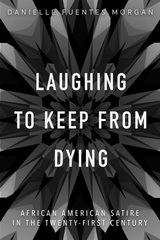
Laughing to Keep from Dying
African American Satire in the Twenty-First Century
Danielle Fuentes Morgan
University of Illinois Press, 2020
By subverting comedy's rules and expectations, African American satire promotes social justice by connecting laughter with ethical beliefs in a revolutionary way. Danielle Fuentes Morgan ventures from Suzan-Lori Parks to Leslie Jones and Dave Chappelle to Get Out and Atlanta to examine the satirical treatment of race and racialization across today's African American culture. Morgan analyzes how African American artists highlight the ways that society racializes people and bolsters the powerful myth that we live in a "post-racial" nation. The latter in particular inspires artists to take aim at the idea racism no longer exists or the laughable notion of Americans "not seeing" racism or race. Their critique changes our understanding of the boundaries between staged performance and lived experience and create ways to better articulate Black selfhood.
Adventurous and perceptive, Laughing to Keep from Dying reveals how African American satirists unmask the illusions and anxieties surrounding race in the twenty-first century.
[more]
READERS
Browse our collection.
PUBLISHERS
See BiblioVault's publisher services.
STUDENT SERVICES
Files for college accessibility offices.
UChicago Accessibility Resources
home | accessibility | search | about | contact us
BiblioVault ® 2001 - 2025
The University of Chicago Press






